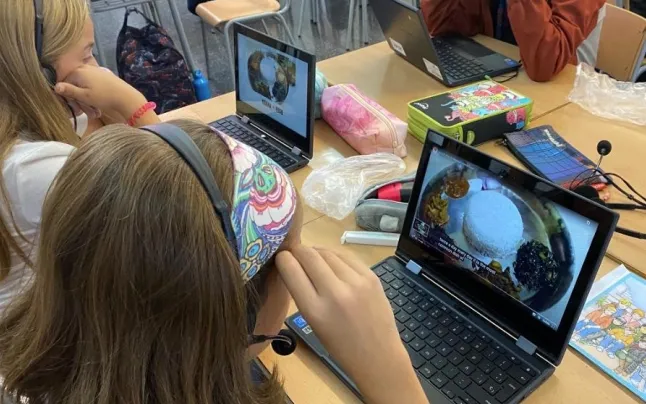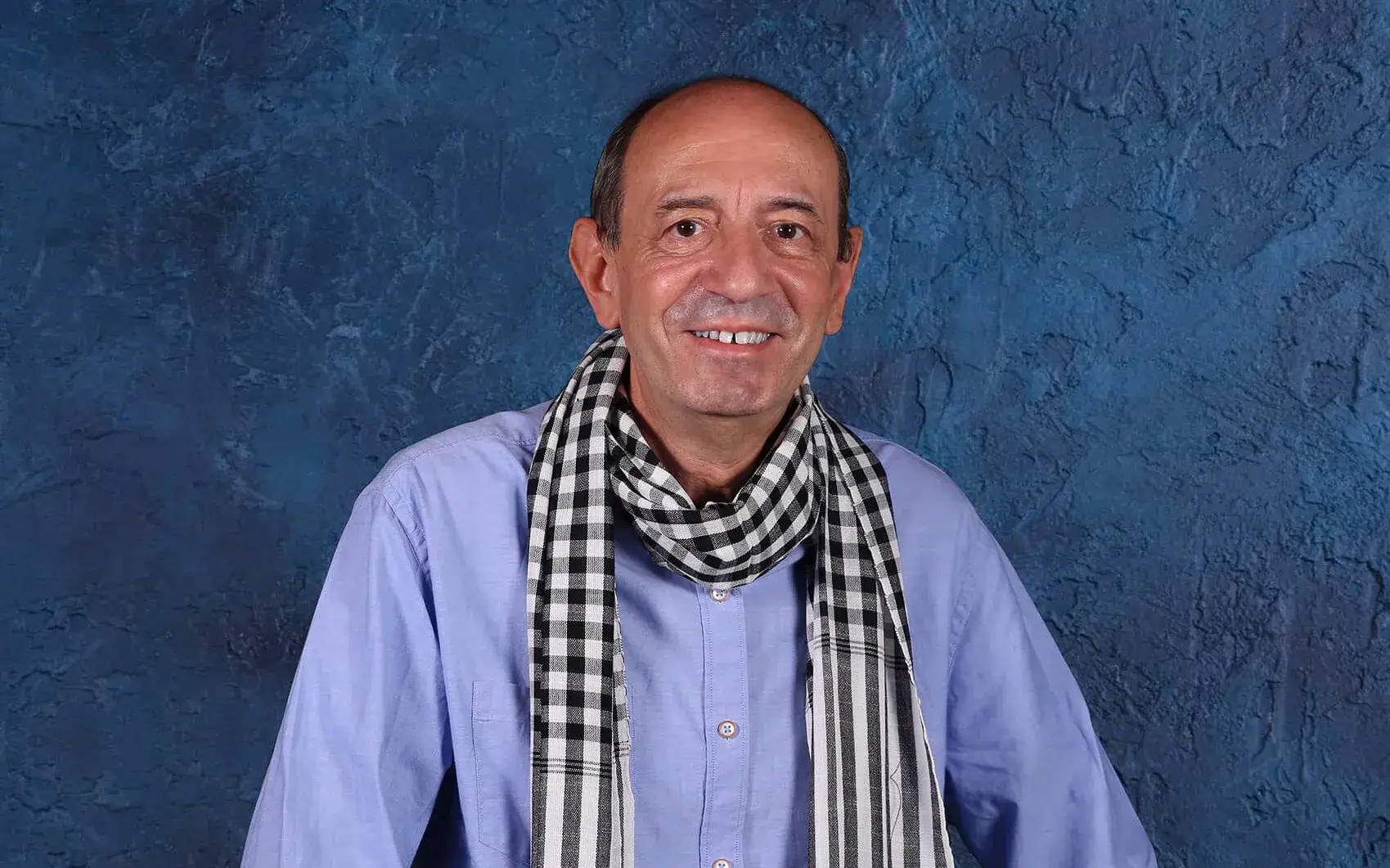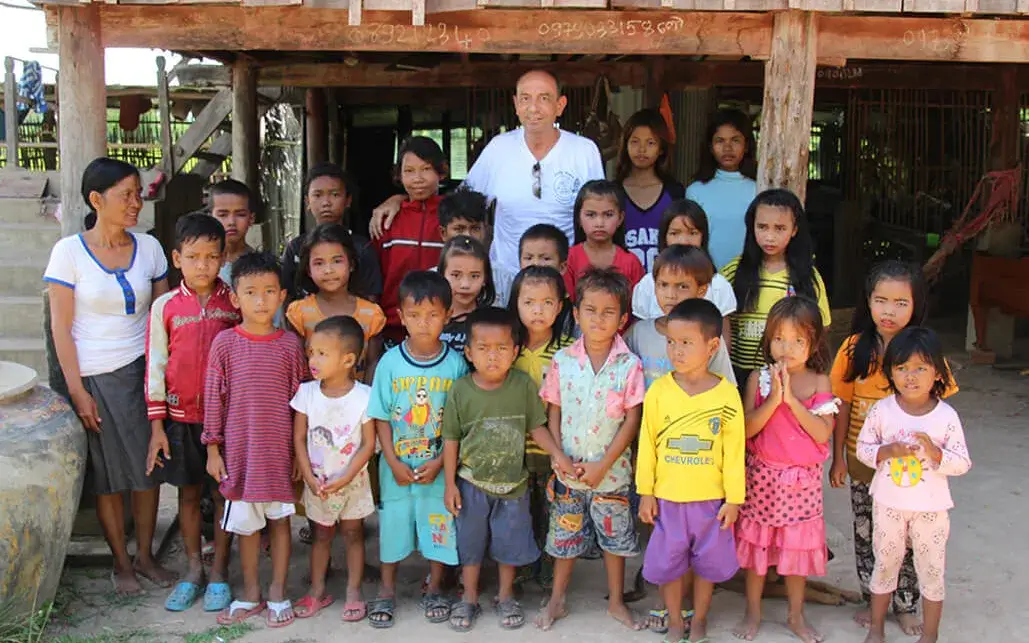The NGO Amics del Nepal has created an educational project designed for Catalan schools, specifically for English classes, to help the students understand this small country at the foot of the Himalayas.
When we think of Nepal, the huge Himalayan mountains quickly come to mind. But the reality of this small country in the middle of India and China, the two most populous countries in the world, is much richer and more complex. Amics del Nepal is well aware of this, a Catalan NGO that, for more than twenty-five years, has been working to support the most disadvantaged communities in the country and to disseminate Nepal's cultural and social reality.
To approach different aspects of the country, especially to the youth, the entity has created an educational project that will allow students of Catalan schools to learn a little more about the geography, economy, culture and biodiversity, among other topics, of Nepal. The initiative, called 'Nepal School Documentary Festival' (AN Doc-Fest), intends to be carried out through the English subject so that, while students discover the country, they can improve English in a fun, digital and interactive way.
However, the project would not have been possible without the efforts and involvement of the volunteers and students at the Amics del Nepal Activity Center in Kathmandu, who have actively participated in the development of didactic material. The ultimate aim of the initiative is for students from Catalonia and Nepal to join forces and work together to create a documentary about Nepal.
A project which intends to "create bonds”
The project arose from the long-standing relationship between Amics del Nepal and the Joan Blanquer School of Castellar del Vallès. Many students have organized charity events for the NGO and have exchanged letters with young teenagers from the host house that the entity manages in Nepal, among other actions.
“We had been thinking for a while about the idea of deepening this collaboration and going further. For example, by creating some educational projects and taking advantage of the aid we received from Catalan municipalities, with the aim of creating and reinforcing the link with the population through the schools,” expresses to Nonprofit Dani Roig, coordinator of Amics del Nepal’s projects.
After brooding on the possibilities, the way to return this aid crystallized in the 'AN Doc-Fest' project. The initiative is based on an interactive map of Nepal, which functions as a shared game board. On this map, each participating class can choose several localities in the country where the NGO has a presence and, in each of them, a theme is worked through activities and videos.
Thus, students can get to know first hand, thanks to the videos, Nepalese people, workers and students from the Amics del Nepal Activity Center in Kathmandu, who have been involved in different realities of the country, the cradle of the highest mountains in the world. The topics worked on are solidarity, language, biodiversity, culture, food, geography, economy and festivals. All of this, in English, of course, and intended to be done in the classroom, although it can also be taught online.
The active participation of the people of Nepal was one of the main purposes of raising the project. “We wanted to create materials for schools in Catalonia, but for us, it was very important that the project was useful for the Napalese population, for the people who benefit from our work there,” explains Dani Roig.
In this regard, all the materials and video editing have been prepared by Nepal's youth host homes and NGO projects. In this way, they have also acquired knowledge of computer science and editing as part of a shared initiative. In total, the educational tool includes around seventy videos. “The truth is that they’ve had plenty of material to record and edit,” says Roig, who details that Nepal’s youth is carrying out the project during extra-school hours at the center of activities that the entity manages in Nepal.
Another interesting point in the project is that it allows students from all over the world to interact through videos in which questions are raised. This, as Roig explains, is particularly valuable for students in Nepal, who are pursuing a rather old and memoiristic education, and taking part in an initiative such as this one certainly helps them widen their horizons.
Amics del Nepal’s coordinator cites an example of this method: “one of the questions that the Catalan students asked the Nepalese was whether they had an LGBTI pride day. They did not know what to answer and had to inform and ask questions about it”.
The ultimate goal of the educational material and this virtual journey through Nepal is to create a documentary about the country with the knowledge that students have acquired as they have worked with the material. The idea is for the Catalan students to write the documentary script, so that Nepalese students edit the video.
Finally, the intention is to organize a festival in which the documentaries made by each school are shown. To carry out the project, Amics del Nepal has had the collaboration, among others, of Teresa Socias, an English teacher at the Salvador Espriu High School.
Two Catalan schools have held the project’s tests
The project has started this course as a pilot test in two Catalan centers. The Joan Blanquer School, in Castellar del Vallès, and Lanaspa-Giralt, in Terrassa. In the latter, in particular, the initiative has already come a long way and the students have been working on it. It is a course to test how the activity works and what the teacher thinks about it.
Sheila Lahoz is the English teacher at the Lanaspa-Giralt High School where she has been developing the activity, and explains that she has enjoyed a good reception from the students. “The material has aroused interest and curiosity amongst boys and girls because it is an activity that is not common and has this exotic knowledge of Nepal that has thwarted them,” he expresses in a conversation with Xarxanet.
However, the teacher also points out some difficulties, such as the large volume of information that the activity provides, which often made it difficult to convey with the students. The necessary time that has to be inverted and the timetable marked for deploying the activity is quite tight. “Despite the difficulties, there are very glaring activities that students have enjoyed doing, and it is very fun for them to create videos with questions for Nepal’s youth and receive their answers,” she says.
Beyond the work done in the classrooms, the material is available on the Amics del Nepal website, and it is intended to be useful to anyone who wants to discover Nepal and deepen on some of its features while practicing English. In fact, the entity encourages everyone who is interested in navigating freely on the interactive map, to get to know better the country through the people who benefit from the NGO.









Add new comment